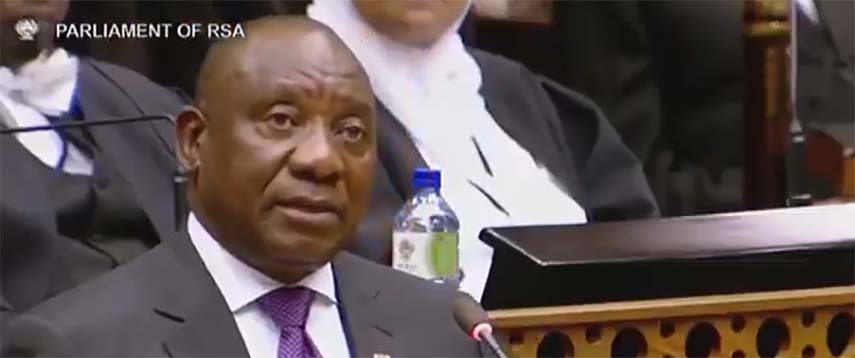South Africa needs to embrace and harness technology now, or risk being left behind.
This was the sentiment expressed last night by President Cyril Ramaphosa, in his State of the Nation Address to a the joint sitting of Parliament and the National Council of Provinces.
“As we grapple with the challenges of our recent past, and as we deepen our efforts to overcome the grave injustices of centuries, it is essential that we do so with our eyes firmly fixed on the future,” he says.
“The world we now inhabit is changing at a pace and in a manner that is unprecedented in human history. Revolutionary advances in technology are reshaping the way people work and live.
“They are transforming the way people relate to each other, the way societies function and the way they are governed.”
Ramaphosa laid out the alternative routes that South Africa could take in this new world. “It is a choice between being overtaken by technological change or harnessing it to serve our developmental aspirations. It is a choice between entrenching inequality or creating shared prosperity through innovation.
“Unless we adapt, unless we understand the nature of the profound change that is reshaping our world, and unless we readily embrace the opportunities it presents, the promise of our nation’s birth will forever remain unfulfilled.”
To ensure that the country harnesses technological change for inclusive growth and development, Ramaphosa has appointed a Presidential Commission on the 4th Industrial Revolution.
“Comprised of eminent persons drawn from different sectors of society, the commission will serve as a national overarching advisory mechanism on digital transformation.
“It will identify and recommend policies, strategies and plans that will position South Africa as a global competitive player within the digital revolution space.
“Building on the work we have done over the last year, we will focus on further strengthening the capacity of the state.”
The country aims to reach into the future, he adds, and has already built a platform of scientific achievement upon which to build.
“The successful construction in the Northern Cape of the MeerKAT telescope, the world’s largest and most sensitive radio telescope, and the development of the Square Kilometre Array has enabled South Africa to develop capabilities in areas such as space observation, advanced engineering and supercomputing,” he points out.
“These skills and capabilities are being used to build HERA, a radio telescope designed to detect, for the first time, the distinctive radio signal from the very first stars and galaxies that formed early in the life of the universe.
“This is not merely about advancing human understanding of the origins of the universe – it is about responding to the challenges that face South Africans now and into the future. It is about developing the technology and the capabilities that will build a dynamic and competitive economy that creates decent, sustainable jobs.
“It is about enhanced food security, better disease management, and cheaper, cleaner and more efficient energy. It is about smart human settlements and social development solutions built around people’s needs and preferences. It is about smarter, more responsive, more effective governance.”

